Join our list
Subscribe to our mailing list and get interesting stuff and updates to your email inbox.
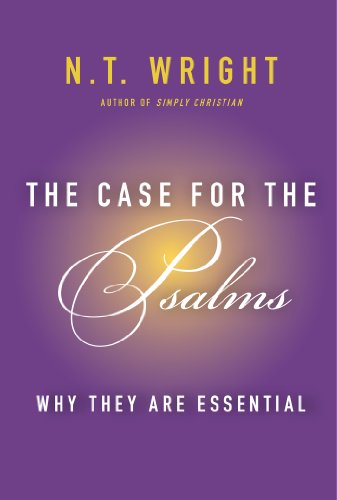
Publisher: HarperOne
Price: $2.99
Widely regarded as the modern C. S. Lewis, N. T. Wright, one of the world’s most trusted and popular Bible scholars and the bestselling author of Simply Christian and Surprised by Hope, presents a manifesto urging Christians to live and pray the Bible’s Psalms in The Case for the Psalms.
Wright seeks to reclaim the power of the Psalms, which were once at the core of prayer life. He argues that, by praying and living the Psalms, we enter into a worldview, a way of communing with God and knowing him more intimately, and receive a map by which we understand the contours and direction of our lives. For this reason, all Christians need to read, pray, sing, and live the Psalms. By providing the historical, literary, and spiritual contexts for reading these hymns from ancient Israel’s songbook, The Case for the Psalms provides the tools for incorporating these divine poems into our sacred practices and into our spirituality itself.
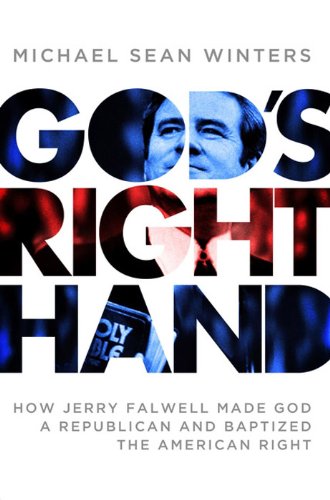 Author(s): Michael Sean Winters
Author(s): Michael Sean WintersPublisher: HarperOne
Price: $1.99 (Ends Oct 1)
An acclaimed reporter presents the first major biography of the legendary, and divisive, conservative pastor who reshaped the landscape of American politics—Jerry Falwell. At a time when the Tea Party movement is dominating much of America’s social and political discourse, the story of Falwell’s Moral Majority will resonate strongly. Indeed, Falwell’s language may sound familiar to anyone who has heard recent speeches by figures like Sarah Palin, Rick Perry, or Michelle Bachmann.
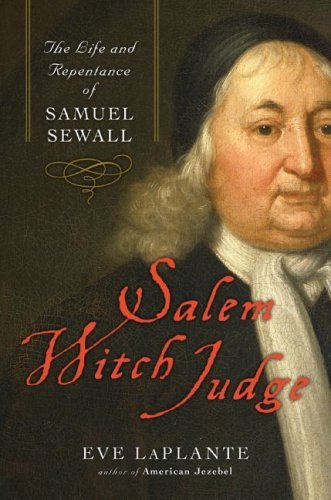 Author(s): Eve LaPlante
Author(s): Eve LaPlantePublisher: HarperOne
Price: $1.99 (Ends Oct 1)
In 1692 Puritan Samuel Sewall sent twenty people to their deaths on trumped-up witchcraft charges. The nefarious witch trials in Salem, Massachusetts represent a low point of American history, made famous in works by Longfellow, Nathaniel Hawthorne (himself a descendant of one of the judges), and Arthur Miller. The trials might have doomed Sewall to infamy except for a courageous act of contrition now commemorated in a mural that hangs beneath the golden dome of the Massachusetts State House picturing Sewall’s public repentance. He was the only Salem witch judge to make amends.
But, remarkably, the judge’s story didn’t end there. Once he realized his error, Sewall turned his attention to other pressing social issues. Struck by the injustice of the New England slave trade, a commerce in which his own relatives and neighbors were engaged, he authored “The Selling of Joseph,” America’s first antislavery tract. While his peers viewed Native Americans as savages, Sewall advocated for their essential rights and encouraged their education, even paying for several Indian youths to attend Harvard College. Finally, at a time when women were universally considered inferior to men, Sewall published an essay affirming the fundamental equality of the sexes. The text of that essay, composed at the deathbed of his daughter Hannah, is republished here for the first time.
In Salem Witch Judge, acclaimed biographer Eve LaPlante, Sewall’s great-great-great-great-great-great-granddaughter, draws on family lore, her ancestor’s personal diaries, and archival documents to open a window onto life in colonial America, painting a portrait of a man traditionally vilified, but who was in fact an innovator and forefather who came to represent the best of the American spirit.
 Author(s): Dave L. Goetz
Author(s): Dave L. GoetzPublisher: HarperOne
Price: $1.99 (Ends Oct 1)
A great number of seekers find themselves in the seemingly unreal world of the suburbs. They read spirituality books but find themselves in carpools and coaching soccer, not in monasteries. Dave Goetz, a former pastor, shows that the suburbs are a real world, but a spiritually corrosive one. The land of SUVs and soccer leagues can truly be toxic to the soul. Suburbanites need to understand how the environment affects them and what spiritual disciplines are needed for their faith to survive and thrive. Goetz identifies eight toxins in suburban life, such as hyper-competition and the “transactional” friendship, and suggests eight corresponding disciplines to keep the spiritual life authentic. Goetz weaves sociology studies, his own experiences, current events, the wisdom of the spiritual masters, and a little humor to equip spiritual suburbanites for how to relate to God amidst Starbucks, strip–malls, and perfect lawns.
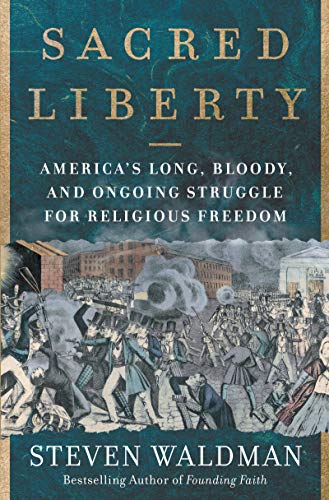 Author(s): Steven Waldman
Author(s): Steven WaldmanPublisher: HarperOne
Price: $1.99
Sacred Liberty offers a dramatic, sweeping survey of how America built a unique model of religious freedom, perhaps the nation’s “greatest invention.” Steven Waldman, the bestselling author of Founding Faith, shows how early ideas about religious liberty were tested and refined amidst the brutal persecution of Catholics, Baptists, Mormons, Quakers, African slaves, Native Americans, Muslims, Jews, and Jehovah’s Witnesses. American leaders drove religious freedom forward–figures like James Madison, George Washington, the World War II presidents (Roosevelt, Truman, and Eisenhower) and even George W. Bush. But the biggest heroes were the regular Americans – people like Mary Dyer, Marie Barnett and W.D. Mohammed — who risked their lives or reputations by demanding to practice their faiths freely.
Just as the documentary Eyes on the Prize captured the rich drama of the civil rights movement, Sacred Liberty brings to life the remarkable story of how America became one of the few nations in world history that has religious freedom, diversity and high levels of piety at the same time. Finally, Sacred Liberty provides a roadmap for how, in the face of modern threats to religious freedom, this great achievement can be preserved.
 Author(s): Randall Balmer
Author(s): Randall BalmerPublisher: HarperOne
Price: $1.99 (Ends Oct 1)
How did we go from John F. Kennedy declaring that religion should play no role in the elections to Bush saying, “I believe that God wants me to be president”?
Historian Randall Balmer takes us on a tour of presidential religiosity in the last half of the twentieth century—from Kennedy’s 1960 speech that proposed an almost absolute wall between American political and religious life to the soft religiosity of Lyndon B. Johnson’s Great Society; from Richard Nixon’s manipulation of religion to fit his own needs to Gerald Ford’s quiet stoicism; from Jimmy Carter’s introduction of evangelicalism into the mainstream to Ronald Reagan’s co-option of the same group; from Bill Clinton’s covert way of turning religion into a non-issue to George W. Bush’s overt Christian messages, Balmer reveals the role religion has played in the personal and political lives of these American presidents.
Americans were once content to disregard religion as a criterion for voting, as in most of the modern presidential elections before Jimmy Carter. But today’s voters have come to expect candidates to fully disclose their religious views and to deeply illustrate their personal relationship to the Almighty. God in the White House explores the paradox of Americans’ expectation that presidents should simultaneously trumpet their religious views and relationship to God while supporting the separation of church and state. Balmer tells the story of the politicization of religion in the last half of the twentieth century, as well as the “religionization” of our politics. He reflects on the implications of this shift, which have reverberated in both our religious and political worlds, and offers a new lens through which to see not only these extraordinary individuals but also our current political situation.
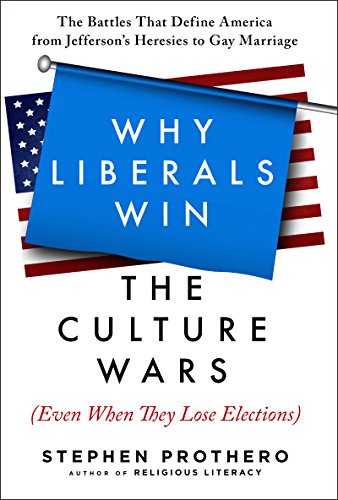 Author(s): Stephen Prothero
Author(s): Stephen ProtheroPublisher: HarperOne
Price: $1.99 (Ends Oct 1)
In this timely, carefully reasoned social history of the United States, the New York Times bestselling author of Religious Literacy and God Is Not One places today’s heated culture wars within the context of a centuries-long struggle of right versus left and religious versus secular to reveal how, ultimately, liberals always win.
Though they may seem to be dividing the country irreparably, today’s heated cultural and political battles between right and left, Progressives and Tea Party, religious and secular are far from unprecedented. In this engaging and important work, Stephen Prothero reframes the current debate, viewing it as the latest in a number of flashpoints that have shaped our national identity. Prothero takes us on a lively tour through time, bringing into focus the election of 1800, which pitted Calvinists and Federalists against Jeffersonians and “infidels;” the Protestants’ campaign against Catholics in the mid-nineteenth century; the anti-Mormon crusade of the Victorian era; the fundamentalist-modernist debates of the 1920s; the culture wars of the 1980s and 1990s; and the current crusade against Islam.
As Prothero makes clear, our culture wars have always been religious wars, progressing through the same stages of conservative reaction to liberal victory that eventually benefit all Americans. Drawing on his impressive depth of knowledge and detailed research, he explains how competing religious beliefs have continually molded our political, economic, and sociological discourse and reveals how the conflicts which separate us today, like those that came before, are actually the byproduct of our struggle to come to terms with inclusiveness and ideals of “Americanness.” To explore these battles, he reminds us, is to look into the soul of America—and perhaps find essential answers to the questions that beset us.


